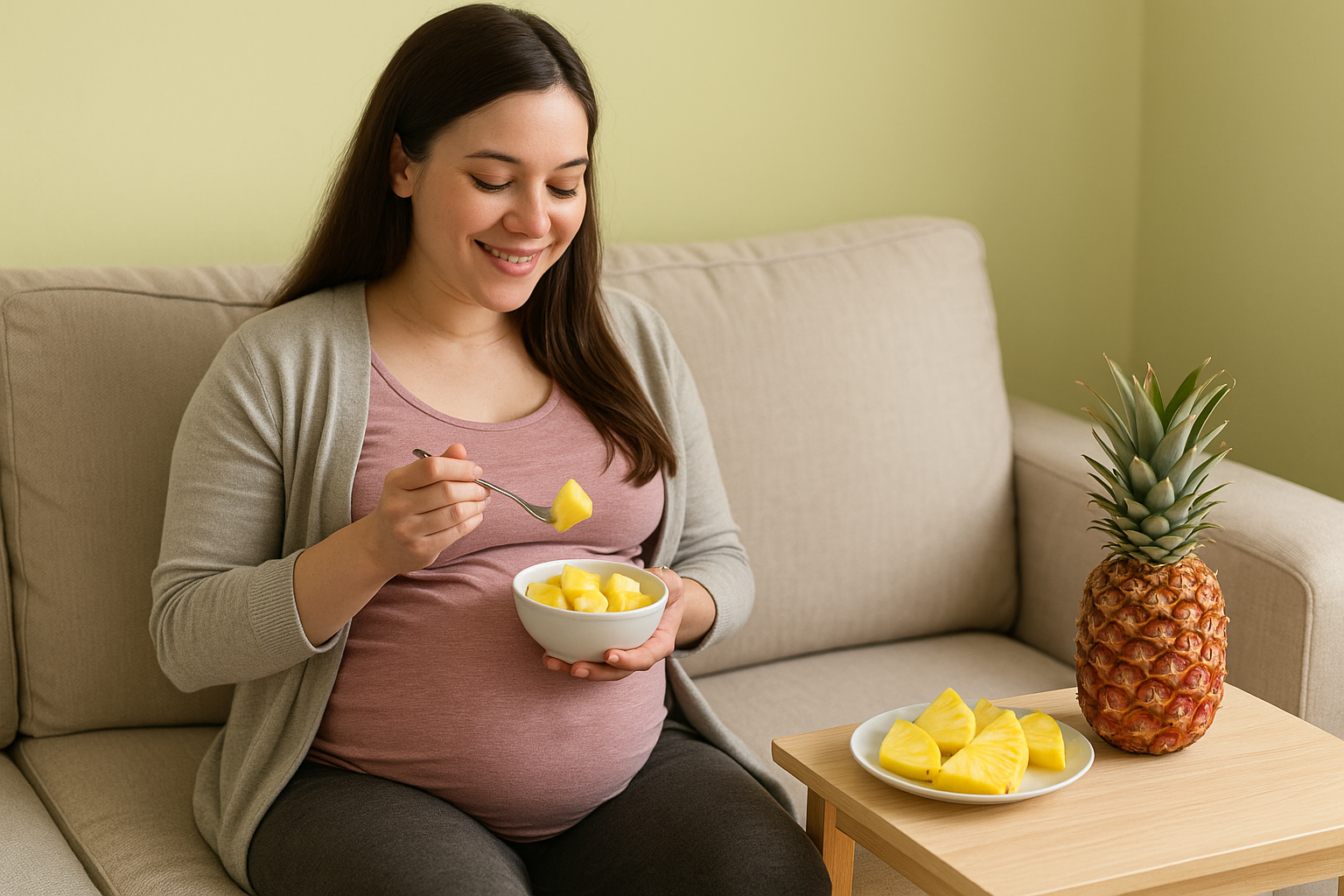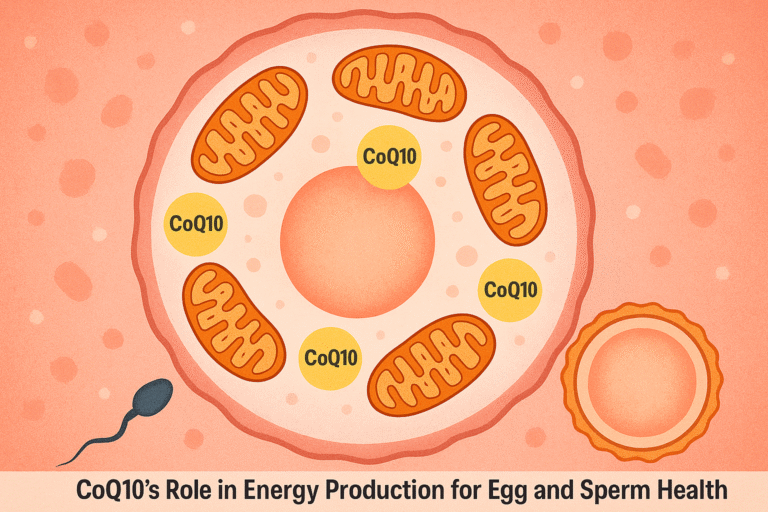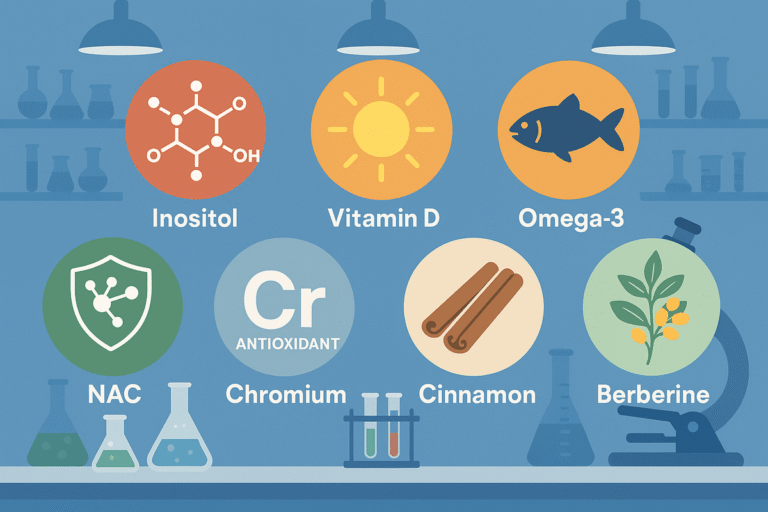Overview
Pregnancy is a beautiful yet sometimes overwhelming journey. From the moment you share the good news, advice starts pouring in from every direction, family, friends, neighbors, even strangers. Some tips are valuable, while others are built on myths that can confuse and scare moms-to-be.
One common concern surrounds a sweet, tropical fruit: pineapple. You may have heard someone warn that pineapple can trigger labor or even cause miscarriage. Such claims can create unnecessary anxiety. The truth, however, is quite different. Modern science and nutrition research show that pineapple is not only safe but also a nutritious choice for expecting mothers when eaten in moderation.
This article will dive deep into the myths and facts about pineapple during pregnancy, its nutritional value, potential risks, and the best ways to enjoy it safely.
Also read: Horny Goat Weed for Women: Nature’s Secret to Boosting Libido?
Can You Eat Pineapple While Pregnant?
The short answer: Yes, you can.
Pineapple is a safe and healthy fruit for pregnant women. The belief that eating pineapple might cause miscarriage or early labor has circulated for decades, but it’s purely anecdotal. No scientific studies support this claim.
What we know is:
- Eating pineapple in normal amounts does not trigger contractions.
- Pineapple contains many essential nutrients that support both mother and baby.
- Avoiding pineapple without reason may cause you to miss out on essential vitamins.
In reality, the fear around pineapple stems from a misunderstanding about one of its natural compounds, bromelain, which we’ll explain next.
The Truth About Bromelain
Pineapple contains bromelain, an enzyme with protein-digesting properties. In high, concentrated doses (like bromelain supplements), this enzyme could pose risks such as:
- Breaking down proteins in the body
- Thinning the blood
- Causing abnormal bleeding
Because of these effects, bromelain tablets are not recommended during pregnancy.
But here’s the key point: The flesh of pineapple contains only tiny amounts of bromelain. Most of it is found in the stem and core, which we don’t typically eat. A few slices of pineapple or a cup of juice won’t come close to the concentrated levels found in supplements.
The bottom line: Eating pineapple as part of a balanced diet is safe and will not harm your pregnancy.
Pineapple in a Healthy Pregnancy Diet
During pregnancy, your body needs more nutrients than ever before. A well-rounded diet helps support:
- Baby’s growth and organ development
- Mother’s energy levels
- Strong immunity and healthy digestion
According to the USDA, a pregnancy diet should include foods from five groups:
- Vegetables
- Fruits
- Grains
- Dairy
- Protein sources like fish, meat, beans, and eggs
Why pineapple fits perfectly
Pineapple belongs to the fruit group, but it also provides unique benefits:
- Vitamin C: One cup of pineapple offers nearly 100% of your daily vitamin C needs. This supports immunity and helps with iron absorption.
- Folate: Essential for preventing neural tube defects in babies.
- Magnesium & Manganese: Important for bone strength and energy production.
- Vitamin B-6 (Pyridoxine): Helps reduce morning sickness and supports brain development.
- Copper & Iron: Support blood health and prevent anemia.
In short, pineapple is more than just a sweet treat—it’s a nutrient powerhouse.
How Much Pineapple Is Safe During Pregnancy?
Moderation is the golden rule. While pineapple is healthy, eating it in excessive amounts may cause discomfort due to its acidity.
A good serving size:
- 1 cup of fresh pineapple or
- A glass of natural pineapple juice
This is enough to get the nutritional benefits without risking heartburn or acid reflux, which many pregnant women already experience.
Creative Ways to Add Pineapple to Your Diet
If you’re tired of plain fruit slices, there are many fun and delicious ways to enjoy pineapple during pregnancy:
- Blend it into a smoothie with yogurt, banana, and spinach.
- Grill pineapple slices as a naturally sweet side dish.
- Mix chopped pineapple into a tropical fruit salad.
- Add it to salsa for tacos or grilled chicken.
- Make pineapple ice pops for a refreshing summer snack.
- Top homemade pizza with pineapple for a Hawaiian twist.
- Combine it with oats or yogurt for a power breakfast.
These options keep your meals exciting and provide variety in your diet.
Other Fruits and Vegetables to Include
While pineapple is beneficial, it should be part of a wider mix of colorful produce. Aim for a rainbow on your plate. Some excellent choices include:
- Apples & Oranges: Rich in fiber and vitamin C.
- Mangoes & Apricots: Provide vitamin A for the baby’s eyes and skin.
- Sweet Potatoes & Winter Squash: Packed with beta-carotene.
- Spinach & Kale: Full of iron and folate.
- Green Beans: Great for fiber and essential minerals.
When fresh produce isn’t available, frozen or canned fruits and veggies are still healthy alternatives.
Possible Risks of Eating Pineapple
Although pineapple is safe, there are a few things to be aware of:
- Heartburn & Reflux
- Pineapple is naturally acidic. Overeating can exacerbate heartburn, particularly during the second and third trimesters.
- Allergies
- Some people are allergic to pineapple. Reactions may include:
- Itching or swelling in the mouth
- Skin rashes
- Asthma symptoms
- Runny nose or congestion
- If this happens, stop eating pineapple and contact your doctor.
- Some people are allergic to pineapple. Reactions may include:
- Sensitive Stomach
- Eating pineapple in large amounts can cause nausea, diarrhea, or stomach irritation.
Tip: Stick to moderate servings and combine pineapple with other foods to reduce acidity.
Common Myths About Pineapple During Pregnancy
Let’s clear up some myths that still worry many moms-to-be:
- Myth 1: Pineapple causes miscarriage.
- Fact: There’s no scientific evidence for this claim. Regular servings are safe.
- Myth 2: Pineapple triggers labor.
- Fact: Bromelain supplements may pose risks, but fruit itself doesn’t induce contractions.
- Myth 3: Pineapple juice is dangerous.
- Fact: Fresh or canned pineapple juice is safe when consumed in moderation.
- Myth 4: Pineapple is too sugary for pregnancy.
- Fact: While it contains natural sugars, pineapple is also full of fiber and nutrients that balance blood sugar when eaten in reasonable amounts.
Also read: Is coffee during Pregnancy Safe?
Expert Tips for Eating Pineapple in Pregnancy
- Choose fresh over canned whenever possible to avoid added sugars.
- Pair pineapple with protein (like yogurt or nuts) to balance blood sugar.
- Eat small servings if you’re prone to heartburn.
- Consult your doctor if you have gestational diabetes or other dietary restrictions.
- Avoid bromelain supplements, as they are not safe during pregnancy.
The Takeaway
Pineapple is a safe, nutritious, and delicious fruit that expecting mothers can enjoy without fear. The myths around miscarriage or premature labor are not backed by science. Instead, pineapple offers key vitamins and minerals that support a healthy pregnancy.
Like with all foods, moderation matters. Stick to reasonable servings, listen to your body, and mix pineapple with a variety of other fruits and vegetables.
If you ever feel unsure, talk to your healthcare provider—they can give personalized advice based on your health and pregnancy needs.
Final Word
Pregnancy should be a joyful time, not one filled with unnecessary food fears. By focusing on science-based nutrition and balanced meals, you can enjoy the flavors you love—including pineapple—while giving your baby the healthiest start possible.




